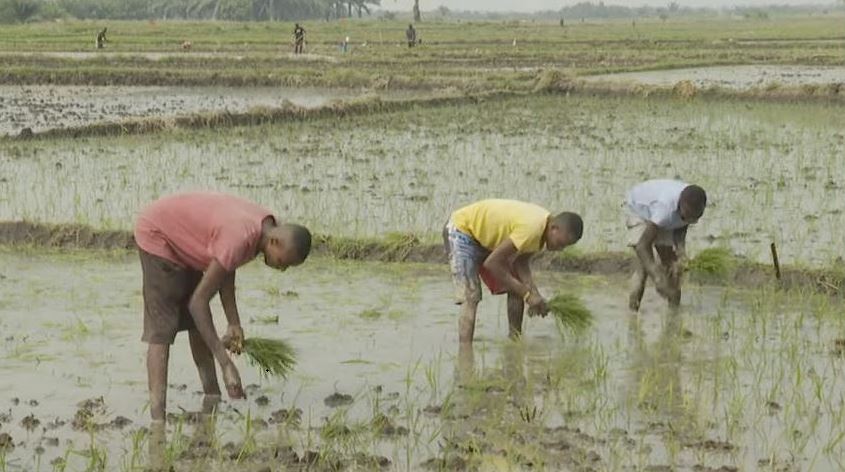
Burundian rice farming project gets a boost from China

Burundi is heavily reliant on agriculture, with rice farming playing a big role in the quest for food sufficiency and economic empowerment.
But while rice farming in the country continues to grow each season, there is still more to do to optimize the production of the cereal.
In this quest, the East African nation has received much-needed help from China.
The Chinese government has funded a rice farming project that aims to increase rice yields.
Now in its fourth season, the project has seen the introduction of a hybrid rice species that does much better than the indigenous species initially available to farmers.
Not only does the Chinese government fund the project, but it also provides technicians and experts to help Burundi farmers optimize their yields.
The rice project is already having a positive impact on the farmers’ lives. Some have been able to construct houses, others have purchased land and livestock while others have been able to take their children to better schools.
“Before I joined this project, I lived in an old house. But now, I have been able to construct a new house and purchased cows. I am also able to take my children to school,” Charles Ngendakumana, a beneficiary of the project said.
“We get more harvests compared to back then and that is why I have managed to make progress in life. As you can see, I have a new house even though I have not completed its construction. I also have four children in private schools. Some are almost finishing primary school now,” Alice Nzeyimana said.
According to the team leader of the project, the farmers are now able to double or even triple their yields using the new Chinese knowledge.
This not only helps Burundi in its quest for food sufficiency but also helps the farmers lift their economic status.
“Before, when we cultivated local variety, production was not good. We got four or five tonnes per hectare. But now we can get good production. For a hectare, we can have ten tonnes or eleven tonnes,” Yang Huade, the team leader of the project said.
With the success already realized so far, Burundians now hope the Chinese team can spread the knowledge further within the country and even beyond its borders.






